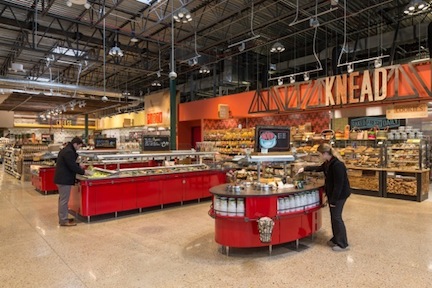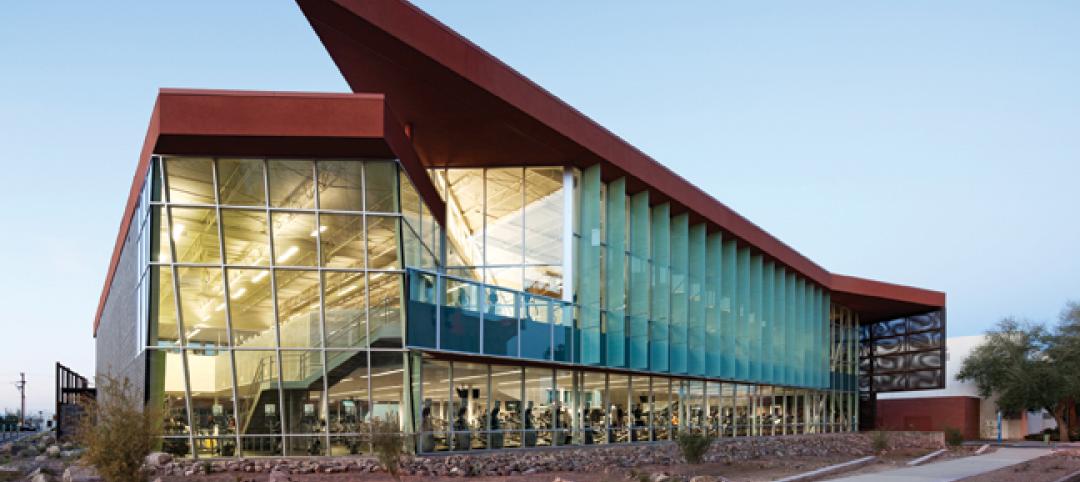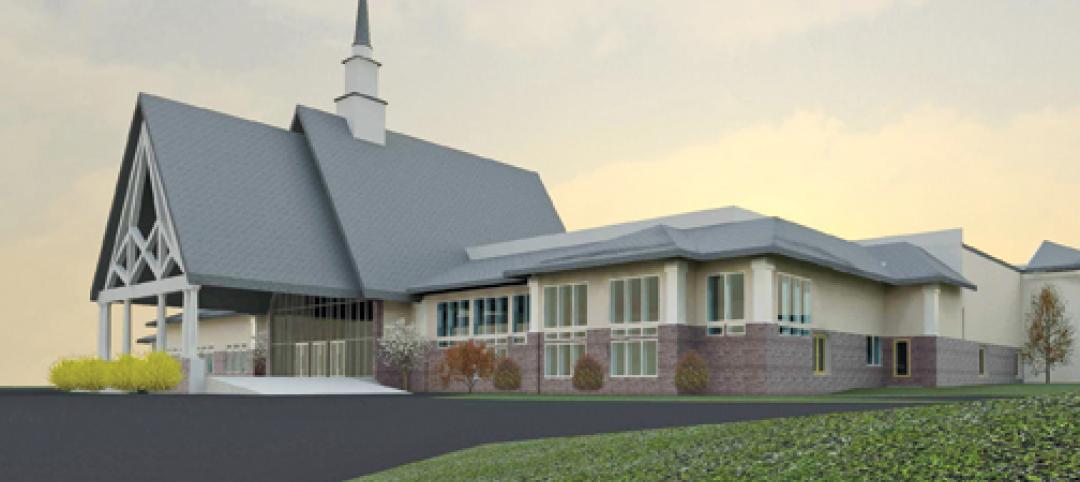Portland, OR – The Green Building Initiative® (GBI) has announced a wave of Green Globes certifications for new grocery stores across the nation.
The properties include New Seasons Markets in Oregon, and Whole Foods, Price Chopper, Aldi’s, Harris Teeter, Wegmans, and Publix stores across the country.
New Seasons director of construction and facilities Wayne Pipes said Green Globes certification helps validate the company’s sustainability story. “We were the first B-Corp grocer in the world—sustainability is part of our DNA,” Pipes said. “We're classified a Zero-Waste company, and using less energy is part of who we are. Green Globes help make our mission clear throughout the community at large as we continue to grow.”
“Grocers’ need for refrigeration make energy-efficient construction and operations especially critical, both from an environmental and an economic standpoint,” Jerry Yudelson, president of Green Building Initiative, said. “Green Globes is ideal for retail environments because of its integration with the ENERGY STAR® program—which includes supermarkets as a building occupancy category—and because it accommodates different building scenarios by not applying penalties for features that aren’t applicable.”
To date, nearly 50 Whole Foods stores have been certified or are now in the Green Globes process. In 2013 Whole Foods expanded its sustainability efforts by taking its first existing building through Green Globes, a store in the Hollywood district of Portland, Oregon, which earned a Three Green Globes Rating.
“If you’re looking for ways to reduce your building footprint or wondering where your facility stands on the green spectrum, this [Green Globes] process has a lot of merit,” Whole Foods Pacific Northwest Region construction manager Bob Gordon said. “The comprehensive evaluation looked at both how the building was built and is operated. It will help us piece together a preventative maintenance program for the whole region. In the long-term, the Green Globes suggestions save money and enhance the facility.”
The Green Globes certification process also incorporates the EPA’s GreenChill Store Certification Program for Food Retailers, which recognizes individual stores for using environmentally friendlier commercial refrigeration systems. Stores also can achieve certification under GreenChill itself.
About the Green Building Initiative™ - The GBI is a nonprofit organization and American National Standards Institute (ANSI) Standards Developer dedicated to accelerating the adoption of green building practices. Founded in 2004, the organization is the sole U.S. provider of the Green Globes® and federal Guiding Principles Compliance building certification and professional accreditation programs. http://thegbi.org.
Related Stories
| Nov 9, 2010
Designing a library? Don’t focus on books
How do you design a library when print books are no longer its core business? Turn them into massive study halls. That’s what designers did at the University of Amsterdam, where they transformed the existing 27,000-sf library into a study center—without any visible books. About 2,000 students visit the facility daily and encounter workspaces instead of stacks.
| Nov 9, 2010
Turner Construction report: Green buildings still on the agenda
Green buildings continue to be on the agenda for real estate owners, developers, and corporate owner-occupants, according to the Turner 2010 Green Building Market Barometer. Key findings: Almost 90% of respondents said it was extremely or very likely they would incorporate energy-efficiency improvements in their new construction or renovation project, and 60% expected to incorporate improvements to water efficiency, indoor environmental quality, and green materials.
| Nov 5, 2010
New Millennium’s Gary Heasley on BIM, LEED, and the nonresidential market
Gary Heasley, president of New Millennium Building Systems, Fort Wayne, Ind., and EVP of its parent company, Steel Dynamics, Inc., tells BD+C’s Robert Cassidy about the Steel Joist Manufacturer’s westward expansion, its push to create BIM tools for its products, LEED, and the outlook for the nonresidential construction market.
| Nov 3, 2010
First of three green labs opens at Iowa State University
Designed by ZGF Architects, in association with OPN Architects, the Biorenewable Research Laboratory on the Ames campus of Iowa State University is the first of three projects completed as part of the school’s Biorenewables Complex. The 71,800-sf LEED Gold project is one of three wings that will make up the 210,000-sf complex.
| Nov 3, 2010
Park’s green education center a lesson in sustainability
The new Cantigny Outdoor Education Center, located within the 500-acre Cantigny Park in Wheaton, Ill., earned LEED Silver. Designed by DLA Architects, the 3,100-sf multipurpose center will serve patrons of the park’s golf courses, museums, and display garden, one of the largest such gardens in the Midwest.
| Nov 3, 2010
Public works complex gets eco-friendly addition
The renovation and expansion of the public works operations facility in Wilmette, Ill., including a 5,000-sf addition that houses administrative and engineering offices, locker rooms, and a lunch room/meeting room, is seeking LEED Gold certification.
| Nov 3, 2010
Sailing center sets course for energy efficiency, sustainability
The Milwaukee (Wis.) Community Sailing Center’s new facility on Lake Michigan counts a geothermal heating and cooling system among its sustainable features. The facility was designed for the nonprofit instructional sailing organization with energy efficiency and low operating costs in mind.
| Nov 3, 2010
Seattle University’s expanded library trying for LEED Gold
Pfeiffer Partners Architects, in collaboration with Mithun Architects, programmed, planned, and designed the $55 million renovation and expansion of Lemieux Library and McGoldrick Learning Commons at Seattle University. The LEED-Gold-designed facility’s green features include daylighting, sustainable and recycled materials, and a rain garden.
| Nov 3, 2010
Recreation center targets student health, earns LEED Platinum
Not only is the student recreation center at the University of Arizona, Tucson, the hub of student life but its new 54,000-sf addition is also super-green, having recently attained LEED Platinum certification.
| Nov 3, 2010
New church in Connecticut will serve a growing congregation
Tocci Building Companies will start digging next June for the Black Rock Congregational Church in Fairfield, Conn. Designed by Wiles Architects, the 103,000-sf multiuse facility will feature a 900-person worship center with tiered stadium seating, a children’s worship center, a chapel, an auditorium, a gymnasium, educational space, administrative offices, commercial kitchen, and a welcome center with library and lounge.
















